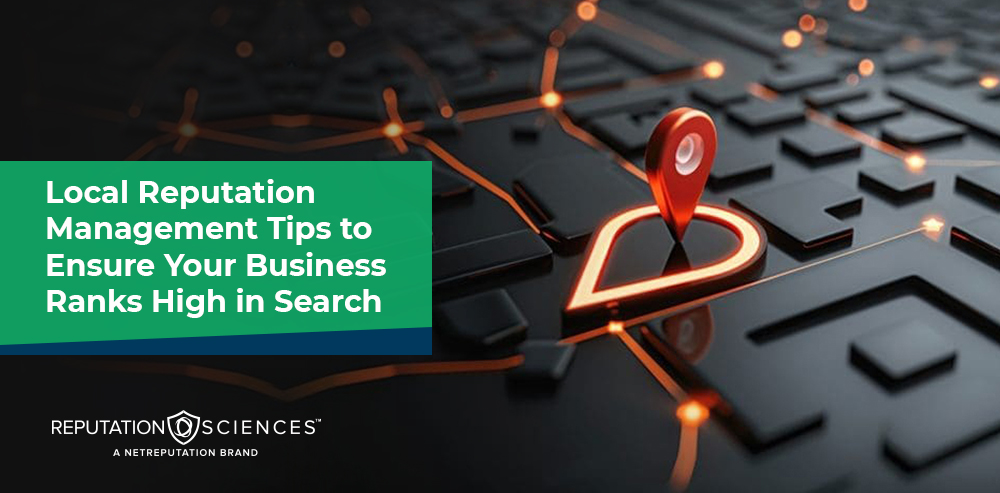Local Reputation Management Tips to Ensure Your Business Ranks High in Search

A strong local reputation is vital for businesses looking to succeed within their communities. Local reputation management focuses on strategies to shape how your local business is perceived online.
This article highlights the importance of maintaining a positive reputation, offers effective monitoring techniques, and provides actionable steps to enhance your standing.
It also discusses common pitfalls to avoid and how to manage a reputation crisis, ensuring your business stands out in search results.
What is Local Reputation Management?
Local reputation management is an ongoing effort by businesses to improve their online perception within their local market. It involves managing customer feedback, both positive and negative, on platforms like social media and review sites. A well-defined local reputation management strategy is essential for effectively managing customer feedback and enhancing online presence.
Businesses can enhance their online presence and improve their search engine rankings by taking a proactive approach and using tools like Google Business Profile. This process helps build brand trust, encourages customer loyalty, and increases overall satisfaction.
Why is Local Reputation Management Important for Businesses?
Maintaining a positive online presence is crucial for businesses aiming to strengthen their brand image. Local business reviews are critical in shaping a brand’s reputation and influencing consumer behavior. Local reputation management shapes customers’ perceptions of a business and affects search engine rankings. By addressing negative reviews and encouraging positive feedback, businesses can enhance customer experience, attract new customers, and boost organic traffic and conversions.
How to Monitor Your Local Reputation?
Monitoring your local reputation is key to effective management. It involves close attention to public perception across various platforms. Tools like Google Alerts can provide real-time notifications about brand mentions while actively monitoring social media and online reviews, which offers insights into customer experiences. A solid monitoring strategy enables businesses to address negative content quickly and improve their reputation. Monitoring reputation across various locations is crucial for multi-location businesses to ensure consistent brand perception.
Set Up Google Alerts: Google Alerts is a straightforward tool that helps businesses monitor their online reputation by notifying them of brand mentions. By setting up alerts for relevant keywords like business names or industry terms, companies can stay updated and respond promptly to online content, enhancing visibility and reputation management.
Monitor Social Media Mentions: Regularly checking platforms like Facebook, Twitter, and Instagram helps businesses gauge public sentiment and engage directly with their audience. Tools like social listening software can aggregate mentions, allowing for effective responses and improved customer satisfaction.
Check Online Reviews: Regularly reviewing sites like Google Business Profile allows businesses to understand customer perceptions and manage their reputation. Tools like BirdEye can streamline review monitoring and responses, helping businesses build trust and influence customer decisions.
By integrating these practices into a comprehensive reputation management strategy, businesses can better connect with customers, address concerns, and strengthen their brand presence.
How to Improve Your Local Reputation Management Strategy?
Improving your local reputation requires a strategic approach that includes encouraging positive reviews, engaging with customer feedback, and leveraging local SEO techniques to boost visibility. Local reputation marketing involves generating positive reviews and customer feedback to enhance a business’s standing in the local community.
By motivating satisfied customers to leave positive reviews and responding thoughtfully to negative feedback, businesses can strengthen their brand image and enhance their online reputation. Effective review management helps address issues and builds trust, leading to better search engine rankings and attracting more customers.
Key strategies include following up with customers for reviews, promptly addressing concerns, and optimizing local SEO efforts like accurate Google Business Profile listings and relevant content updates, all of which contribute to a stronger presence and reputation in the community.
What are the Common Mistakes in Local Reputation Management?
Common mistakes in local reputation management can seriously harm a business’s online presence and brand image. One major error is ignoring negative reviews, which damages a business’s reputation and drives away potential customers.
Failing to respond to customer feedback, whether positive or negative, can also weaken the connection between a brand and its audience, hurting customer loyalty and engagement. Additionally, not utilizing local SEO strategies can limit a business’s visibility and make it harder to manage its reputation effectively. Outsourcing reputation management services to experts can help businesses avoid these common pitfalls and maintain a positive online presence.
To avoid these pitfalls, businesses should actively engage with customer feedback, respond promptly to reviews, and implement local SEO tactics to enhance their online presence and build trust with their audience.
How to Handle a Reputation Crisis from Negative Reviews?
Handling a reputation crisis requires a thoughtful approach that emphasizes transparency and responsiveness. When facing negative reviews, public backlash, or damaging content, businesses should acknowledge the issue openly, demonstrating accountability and a commitment to addressing concerns. In times of crisis, partnering with a reputation management company can provide the expertise needed to navigate the challenges and restore brand trust.
This includes offering sincere apologies and presenting clear solutions to resolve the problems, which helps rebuild trust. Monitoring and responding to customer feedback through social media and review platforms is essential for gauging public sentiment and showing ongoing dedication to improvement.
By taking these steps, businesses can effectively navigate a crisis, strengthen their brand image, and foster long-term customer loyalty.
